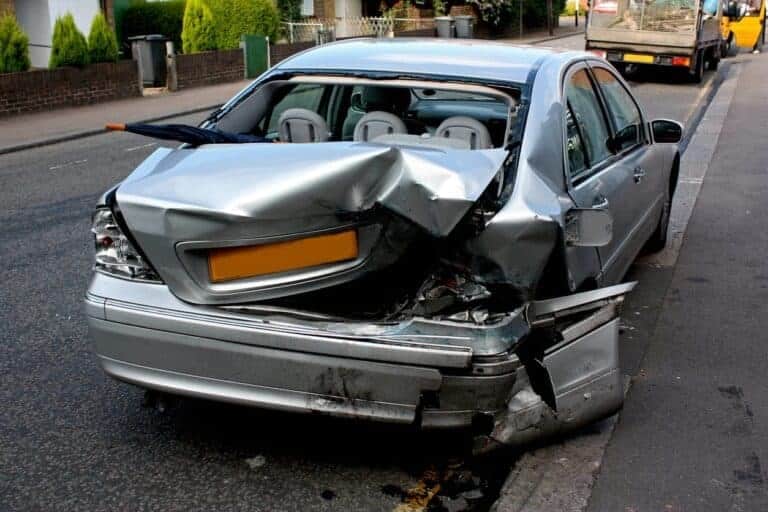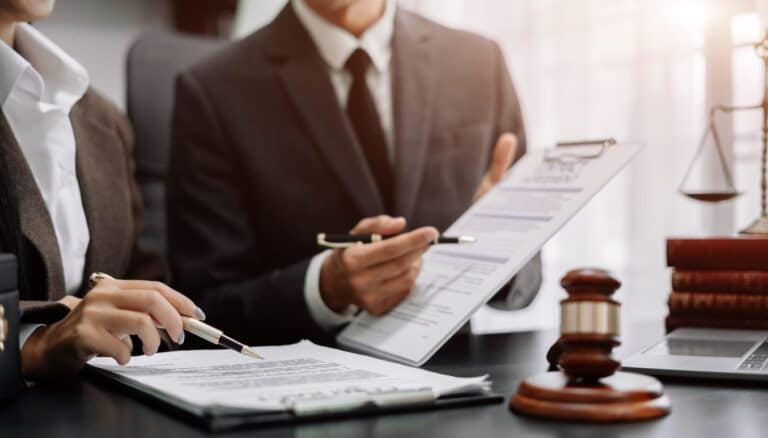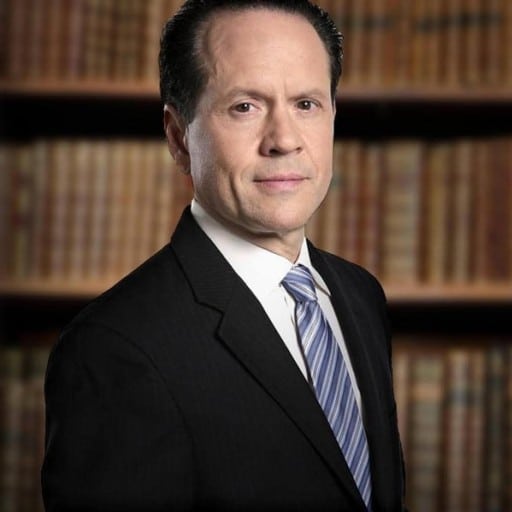Can I Lose My House Due to an At-Fault Car Accident?

Car accidents can significantly impact your physical and financial health. You may suffer injuries requiring long-term medical treatment depending on the accident’s severity. These injuries can affect your ability to engage in routine activities and jeopardize your income. For example, an electrician may be unable to work if they broke their arm or leg in a car wreck.
Medical bills can add up quickly. Even if you have all the insurance you need, you could face thousands in out-of-pocket expenses for deductible fees and medication. You may also have additional costs, such as repair or replacement costs for a vehicle you’re still paying for, and household expenses if you cannot care for your children during your recovery.
Since there are a lot of costs associated with car accidents, it’s natural to worry about additional expenses if you were at fault for the accident. You may wonder if you can lose your house or other assets due to an at-fault car accident in Miami, Florida.
What to do after an at-fault car accident
Florida law requires all vehicle drivers involved in an accident to take specific steps. These steps apply to all drivers, no matter who is at fault and whether the car accident was an injury or non-injury accident involving property damage.
Remain at the scene
All drivers must stay at the accident scene. Moving the vehicles to a safe location may be necessary if leaving them in place poses a safety risk. Still, drivers should move them to the closest safe location, such as the shoulder of the road.
Call 911
You’re required to report car accidents to the police. Calling the police ensures a prompt accident investigation. You may also need emergency crews at the scene if there’s vehicle entrapment or severe injuries. Calling 911 ensures you get the emergency assistance needed.
Check to see if anyone is injured
You are required to help anyone injured in a car accident. Talk to each driver and passenger and ask about their condition. This may be essential information you need to provide when you call 911. The operator will ask whether you need paramedics on the scene and ask you to get as much information as possible to ensure they send the right emergency service workers.
You should also seek medical care for yourself. It’s easier to spot bruises and cuts than to identify organ or soft tissue damage. Some symptoms may take hours or days to appear, so you must consider the possibility you’re injured, even if you don’t think you are. A medical examination can determine whether you have internal injuries. You may also suffer from mental health challenges after an accident, including anxiety, depression, and post-traumatic stress disorder (PTSD). Approximately 39% of car accident victims develop PTSD, and PTSD can cause confusion and guilt.
Gather information
You’re required to provide your name, phone number, and insurance information to other drivers. Other drivers are also required to provide you with this information. Ensure you get information about each driver because it could affect potential lawsuits and help your insurance company and lawyer determine who’s at fault.
You can protect yourself by gathering additional information at the scene. Take pictures and videos with your smartphone. The absence of skid marks and the position of the vehicles could help determine whether other drivers attempted to stop or were driving too fast. Pictures and videos can also preserve other details, such as whether the traffic lights were out or there was an animal on the road.
Taking notes is another way to protect yourself. Accidents are traumatizing, and you may be in shock, have a traumatic brain injury (TBI), or other undiagnosed injuries. Therefore, you may forget crucial details after the accident. Making notes ensures you have the most accurate record possible, and you can give your notes to your attorney if you’re dealing with a lawsuit after your accident.
You should also get contact information for any witnesses at the scene so your attorney can speak to them.
Call your insurance company
Contact your car insurance company after your accident. Due to Florida’s no-fault accident law, your insurance company covers some or all of your expenses after an accident, even if you weren’t responsible for the crash.
Call a car accident lawyer
You should also contact a car accident attorney from the scene. As noted, you may not think clearly after the accident, particularly if you’re in shock. Your lawyer will help you focus on the steps you need to take to comply with the law and protect yourself. For example, you could be charged with a misdemeanor and fined if you leave the accident scene before the police arrive.
What assets can be taken in a car accident lawsuit?
Anything you possess that has financial value is an asset. While people often think of houses and cars as assets, your assets could include investments, collectible items, funds in bank accounts, and digital assets, such as cryptocurrencies.
At-fault parties liable for car accidents could have some assets seized to pay their judgment. While your homestead may be exempt, creditors can repossess your vehicle or other assets and sell these assets to pay your debts. Creditors can also place a lien against your assets, preventing you from selling them until your debt is resolved.
Can you lose your house due to an at-fault car accident?
Florida protects homeowners who are at-fault for a car accident. The state has clear guidelines to prevent an at-fault driver from losing their property if it meets their requirements based on the home’s location. Talking to your car accident attorney about the homestead exemption is the best way to ensure your home’s protected after an accident.
How to protect your assets after a car accident
The best way to protect your assets involves taking steps before an accident. Ensuring you have sufficient personal injury protection (PIP) insurance protects you financially because your insurance can cover a settlement or judgment from a lawsuit.
Car accident attorneys know Florida laws and understand how to limit your liability. That’s why calling an expert car accident attorney is one of the first things you should do after an accident. Everyone’s case is different because multiple variables could impact how much responsibility an at-fault party has for their accident. Comparative fault applies to car accident cases in Florida, meaning multiple parties can be considered at fault.
Suppose you’re in a car accident, and an accident investigation determined you were 65% responsible for the accident. In comparison, Party A was 35% responsible. Party A files a lawsuit against you. The maximum compensation the courts would award would be 65% of the compensation available.
Your attorney will investigate your accident and use statements from witnesses, photos, video footage, and other evidence to reduce your liability. If your attorney establishes that another party shares fault for the accident, they can protect your assets by limiting the damages you could be liable to pay.
You should also review your liability insurance policy to determine what damages your policy covers. Once you confirm which assets are protected and which could be seized, you can work with your attorney to determine how to protect vulnerable assets. This could involve filing a financial affidavit to demonstrate to the court that collecting the monetary judgment could cause severe financial difficulties.
NO FEES UNLESS WE WIN
Protecting Your Rights Since 1983
Turn to the experts at Bernstein and Maryonoff and get your free legal consultation regarding your at-fault auto accident.
Hablamos Español
FAQs about car accident liability
Are there limits to how much a person can sue for after a car accident?
A person can seek three types of damages after a car accident.
Economic damages are reimbursement for expenses, such as medical bills, lost wages, and childcare costs. This number is determined by adding together all bills stemming from the accident. Florida doesn’t restrict the amount of economic damages a plaintiff can seek.
Plaintiffs can also seek non-economic damages. Like economic damages, no cap applies to these damages. Non-economic damages award plaintiffs compensation for pain, suffering, and other ways the accident impacts their lives, such as their inability to enjoy favored activities.
Some cases allow plaintiffs to seek punitive damages. These damages punish the at-fault driver for negligence. Plaintiffs may receive punitive damages of $500,000 or three times the economic and non-economic damages awarded. The amount awarded will be the higher of the two options.
Can I be personally sued after a car accident?
Florida is a no-fault state, which reduces the volume of car accident lawsuits that go to court. Still, you can be sued if you were solely or partially responsible for a car accident.
Can I be sued if insurance settles or pays?
If your insurance company reaches a settlement and pays an accident victim, they usually forfeit the right to sue you. Lawsuits typically occur when the settlement offered by the insurance company doesn’t cover the amount of compensation the accident victim feels they deserve.
What happens if I lose a car accident lawsuit?
Losing a car accident lawsuit means you’re liable for the damages awarded to the plaintiff. You can appeal the verdict, but if you lose on appeal, you’ll have to pay the amount the courts awarded.
What if I am sued for more than my insurance coverage?
Insurance protects people from lawsuit payouts. However, your insurance doesn’t cover the amount awarded in the judgment. You may have to make additional payments to cover the judgment in that case. The plaintiff can also go after your unprotected assets to recover the amount owed. You may also face criminal charges if you don’t have the state’s required amount of PIP insurance.
Am I required to provide a financial affidavit after a car accident?
You aren’t required to provide a financial affidavit after a car accident in Florida. Your best option is to discuss this with your car accident attorney and determine whether it’s in your best interests to file an affidavit.
How Miami’s best auto accident lawyer can help protect your assets and legal rights

When you contact Bernstein & Maryanoff Injury Attorneys, you can be confident you’ll receive the best legal counsel available. Our legal team will use our investigative tools to ensure anyone sharing the fault of the accident is held accountable, which limits your liability in a lawsuit.
Our team will answer all your legal questions and explain your options and the potential implications of your accident. We’ll help prepare the best defense possible to protect your financial future.
Sources:
Tull, M. (2019). The Risk of PTSD After a Car Accident.
Whiplash. (2022).
About the Author

Jack G. Bernstein, ESQ.
Jack Bernstein is a hard-working and highly motivated personal injury attorney in Miami, Florida with over three decades of experience. He is a strategist and idea person, with a genuine passion for helping his firm’s clients. If you’ve been injured, contact Jack Bernstein today for a free evaluation of your case.
